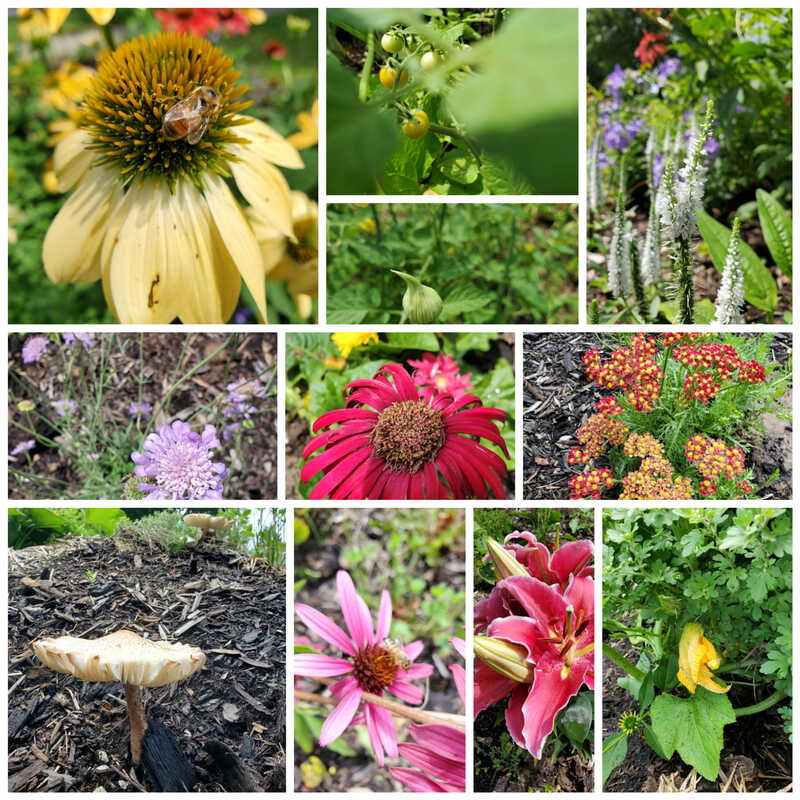
This month I have worked with students at the University of Freiburg, as they enact eco-literate music pedagogy. I have always called for this to be a pedagogy on soil, following Ivan Illich’s call for a philosophy on soil. By “on soil,” I mean radically place-based. Place-conscious. Place-responsive. Emplaced. As such, many of the most pertinent ecological challenges faced in Freiburg, Germany may differ from those here in Central PA, U.S. The musics, which are central to ecological action, that emerge in the grassroots of Central Europe are likely different than those that emerge in the grassroots of Central PA. Nonetheless, we share global crises too, such as e-waste, climate change, and species collapse, that we face together. A pedagogy on soil is local, fully local, in order to be responsive and transformative to the global. There is no way to enact global change without enacting local change. We live, ONLY, in the local.
More than 100 people have died in Germany and Belgium from flooding this week. Meanwhile in the U.S., wildfires rage across Oregon, creating fire clouds reaching up to six miles into the atmosphere. And while it rains nearly every day here in the northern part of the Appalachian Mountains, and my garden is celebrating (see photos from my gardens), Minnesota is facing severe droughts. The Earth Organization for Sustainability draws our attention to the ecosphere, atmosphere, hydrosphere, and lithosphere to better understand the global ecological crises. I wonder too if these will help us draw our attention to local challenges to ecosystems, air, water, and soil. To do so, modifications need to be made.
Mother Earth strives to find a balance within her global ecosystem. When disturbances occur, such as a volcanic eruption (atmosphere), increased chemicals added to the topsoil from farming (lithosphere), or plastic waste dumped into the oceans (hydrosphere), she gradually approaches a state called “dynamic equilibrium.” She restores balance, especially in response to minor disturbances. However, when these disturbances are too large in a single place, ecosystems collapse; which includes the possibility for a global collapse in response to multiple global-level anthropogenic disturbances. In the face of such horror, what are we, music teachers, then to do?
Are we required to fully understand the challenges we face? No. Nobody knows everything. A bit a humility is always a good thing. However, don't mistake willful ignorance for humility. Ecological conscientization is a responsibility for all people. This conscientization will look different for children than adults. Adults can bear on their shoulders the full weight of the mess we’ve made. Children should be introduced to the challenges and their responsibilities gradually. The resistance to sustainable futures enacted by billionaires and global corporations must be addressed. We, the peoples of earth, ultimately must ask ourselves, what sort of economy do we need to enact to thrive on Mother Earth for centuries to come? I believe the solutions to big damage are small structures. If we return our economy to the community-sized, strengthening farmers markets and local businesses, that is the start (but likely not the end) of the change we need. Big solutions may also pan out, though most posed by billionaires have been, for them, profitable lies. Rather, it is most likely the solutions will arise in diverse places, using diverse musics, in the grassroots in diverse communities around the globe. Folk here in the northern Appalachian Mountains are finding distinctive ways of sustaining this place, and folk in other places modify those solutions to their own places; and come up with their own in the deserts of Utah, the lakes of Minnesota, and the once-forested areas of Germany and Belgium.
Listen to: Wisdom Cries, Aurora
DS
 RSS Feed
RSS Feed
